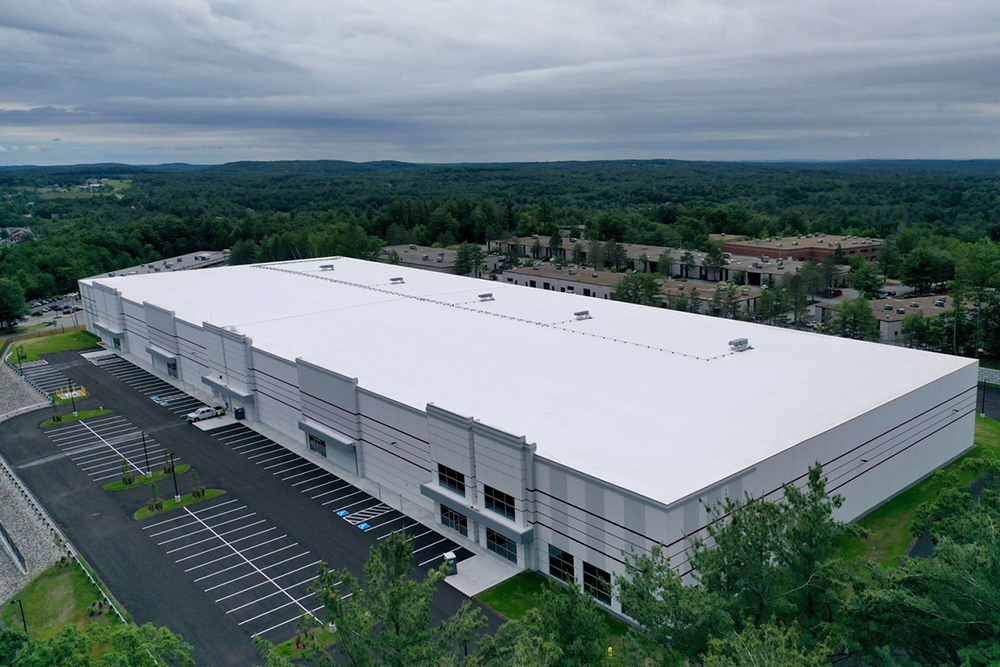Dacon Corp. completes 6 Industrial Way with Paul V. Profeta & Associates - a 155,000 s/f flex warehouse property in NH

Salem, NH Dacon Corp. completed the construction of 6 Industrial Way in collaboration with Paul V. Profeta & Associates. A 155,000 s/f flex warehouse space contiguous to I-93, 6 Industrial Way lies three blocks from the Exit 2 four-way interchange, offering signage visible on I-93 in both north and southbound lanes. It acts as a New England distribution hub that can host up to five tenants and is the tallest building in the northern Mass. industrial market. The building has an interior clear height of 40 ft. (offering several mezzanine options) with a 60 ft. speed bay, 28 dock doors and two at-grade drive-in doors. The site also accommodates a storage area for 22 trailer parking stalls.
Sheergard Composite Solutions, a manufacturer of radomes and electromagnetic windows that are used to protect radar antennas for the defense and space industries, has leased the first 55,000 s/f.

Paul V. Profeta & Associates is an entrepreneurial real estate investment and development company involved in all major asset classes including office, retail, multi-family, mixed-use, and industrial, acting as a value-add investor, renovator, developer and landlord. The company has developed warehouse and distribution facilities in major cities across the U.S. Profeta fell in love with New Hampshire while attending Phillips Exeter Academy. Since then, he has since owned and operated three properties in the area. He also successfully condo-converted the 7 Industrial Way warehouse across the street from this facility.
Colliers International New England and Goodnow Real Estate Services are the co-brokers for the property.
Atlantic Property Management expands facilities maintenance platform: Assigned two new facility management contracts in RI


Tenant Estoppel certificates: Navigating risks, responses and leverage - by Laura Kaplan

Connecticut’s Transfer Act will expire in 2026. What should property owners do now? - by Samuel Haydock

New Quonset pier supports small businesses and economic growth - by Steven J. King


 (1).png)







 (1).png)
